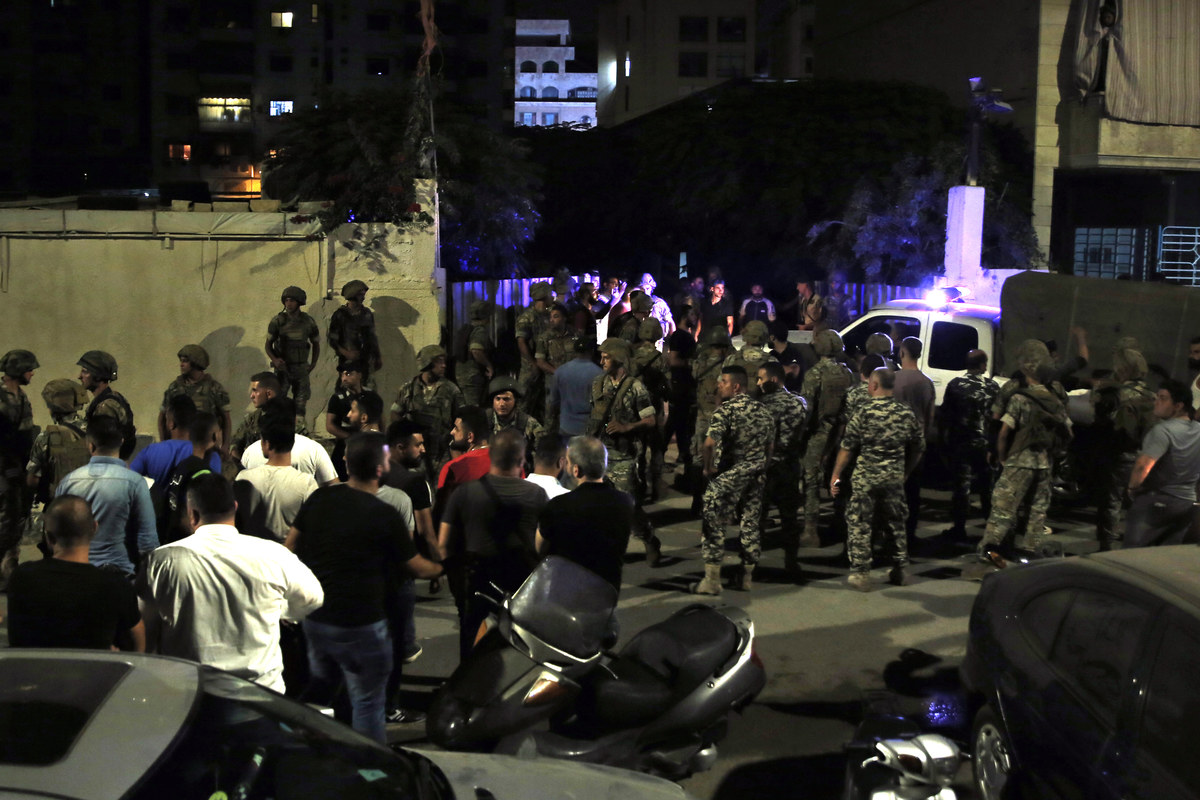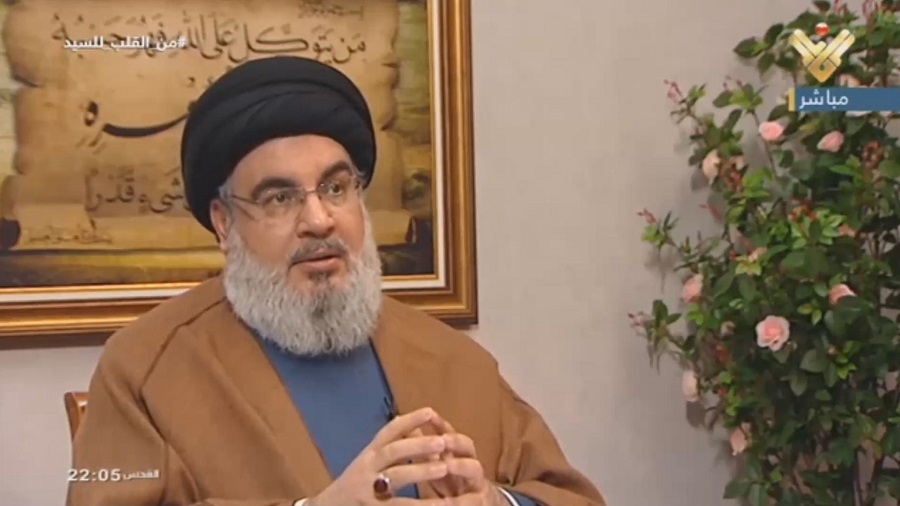BEIRUT: Anger erupted in Lebanon on Sunday after two Israeli drones crashed in south Beirut in a botched raid that was the most serious military escalation since 2006.
The first device, thought to be a surveillance drone, fell to ground between residential buildings in the Mouawad area after children threw stones at it. Israel is thought to have launched a second armed drone to destroy the first one, but it exploded near the Hezbollah media center in the southern Dahiyeh suburbs.
Lebanese Prime Minister Saad Hariri has described the crash of two Israeli reconnaissance drones over Beirut as a violation and “aggression” against Lebanese sovereignty.
“The new aggression ... constitutes a threat to regional stability and an attempt to push the situation toward further tension,” he said.
Hezbollah leader Sayyed Hassan Nasrallah said Sunday the incident was "very, very, very dangerous." He vowed to confront and shoot down Israeli drones in Lebanese skies from now on.

Damage is seen inside the media office of the Lebanese Hezbollah group in a southern suburb of Beirut, Lebanon, Sunday, Aug. 25, 2019. (AP)
Earlier on Sunday the Lebanese army confirmed that the drones were Israeli, while the Shiite group said one of the aircraft damaged its media centre.
“Two drones belonging to the Israeli enemy violated Lebanese airspace (at dawn)... over the southern suburbs of Beirut. The first fell while the second exploded in the air causing material damage,” an army statement said.
The early morning incident came hours after Israel launched air strikes in neighboring Syria.
The Arab League Secretary-General, Ahmed Aboul Gheit, telephoned Hariri and stressed the country’s rejection and condemnation of the repeated Israeli violations against Lebanese sovereignty.
FAST FACTS
- The first drone fell to ground between residential building in the Mouawad area.
- The second device exploded near Hezbollah media center in the Dahiyeh suburbs.
- Lebanon will file a complaint with the Security Council to condemn the attack.
The Arab League said in a statement that “Aboul Gheit affirmed the Arab League’s full solidarity with Lebanon in this delicate situation and its readiness to play its role in maintaining security, stability and civil peace in Lebanon.”
The statement added that the organization strongly condemns the repeated Israeli violations of Lebanese sovereignty, especially in its airspace, as a flagrant violation of Security Council resolution 1701.
The statement stressed that the Arab League hopes to all concerned parties would not escalate and restrain in order to prevent threatening the security and stability of Lebanon and the region.

Lebanese security stand at the site where an Israeli drone was said to have crashed in a stronghold of the Lebanese Hezbollah group, in Beirut, Lebanon, Sunday, Aug. 25, 2019. (AP Photo/Bilal Hussein)
Lebanon has made frequent complaints to the UN about Israeli planes regularly violating its airspace.
In an apparent admission that the drone attack on Lebanon was an error, Amos Yadlin, a former head of Israeli military intelligence, said neither Iran nor Israel were interested in all-out war. “We’re not there yet,” he said. “But sometimes, someone makes a mistake.”
The Lebanese Army said on Sunday it had cordoned off the drone crash site and military police were investigating the incident under the supervision of the judiciary.
A military source told Arab News: “The Lebanese army did not receive the remnants of the two drones immediately, but is in the process of receiving them from Hezbollah.
“The military investigation will focus on the purpose of the flight of the drones, and their route. It is clear that something went wrong during their flight.”
Hariri received a telephone call from US Secretary of State Mike Pompeo after the incidents. The prime minister’s office said: “Pompeo stressed the need to avoid any escalation and to work with all parties to prevent any form of deterioration.”
Hezbollah spokesman, Mohamed Afif, said one of the two drones was rigged with explosives.
He said a second drone which appeared to have been sent by Israel to search for the first drone less than 45 minutes later exploded in the air and crashed nearby — an explosion heard by residents of the area.
Afif told The Associated Press Sunday: “We did not shoot down or explode any of the drones.”

Hassan Nasrallah will respond in a televised speach later Sunday. (File/AFP)
The drones struck overnight in Beirut where residents reported one large explosion that shook the area, triggering a fire.
Initially they said the nature of the blast in the Moawwad neighborhood was not immediately clear, but said it might have been caused by an Israeli drone that went down in the area amid Israeli air activity in neighboring Syria.
The late-night airstrike, which triggered Syrian anti-aircraft fire, appeared to be one of the most intense attacks by Israeli forces in several years of hits on Iranian targets in Syria.
Lt. Col. Jonathan Conricus, a military spokesman, said Iran’s Revolutionary Guards’ Al Quds force, working with allied Shiite militias, had been planning to send a number of explosives-laden attack drones into Israel.
On Twitter, Israeli Prime Minister Benjamin Netanyahu called the attack by Israeli warplanes a “major operational effort.”
Syrian state TV said the country’s air defenses had responded to “hostile” targets over Damascus and shot down incoming missiles before they reached their targets.
In recent days, US officials have said that Israeli strikes have also hit Iranian targets in Iraq.





























